Australian Football Hall of Fame
The Australian Football Hall of Fame was established in 1996, the Centenary year of the Australian Football League, to help recognise the contributions made to the sport of Australian rules football by players, umpires, media personalities, coaches and administrators. It was initially established with 136 inductees. As of 2014, this figure has grown to 257, including 27 "Legends".[1]
 | |
| Established | 1996 |
|---|---|
| Type | Professional sports hall of fame |
| President | Richard Goyder (chairman) |
| Website | www |
While those involved in the game from its inception in 1858 are theoretically eligible, as of 2020, very few outside the major leagues (the Australian Football League (VFL/AFL), the West Australian Football League (WAFL), the South Australian National Football League (SANFL) and the pre-1897 Victorian Football Association (VFA/VFL)) have been recognised.
Selection
Selection criteria
A committee considers candidates on the basis of their ability, integrity, sportsmanship and character. While the number of games played, coached or umpired, or years of service in the case of administrators and media representatives, is a consideration, it alone does not determine eligibility. Players must be retired from the game for at least five years before they become eligible for induction (extended from three years in 2015[2], while coaches, umpires, administrators and media representatives are eligible immediately upon retirement. The committee considers candidates from all the states and territories of Australia and from all Australian Football competitions within Australia.
The following excerpt from the official Hall of Fame website highlights the main criteria used by the committee in selecting inductees to the Hall of Fame:
- The Committee shall consider a candidate's outstanding service and overall contribution to the game of Australian Football in determining a candidate's eligibility for induction into the Hall of Fame.
- Without limiting clause 5.1, the Committee may consider a candidate's individual record, ability, integrity, sportsmanship and character.
- The number of football games played, coached or umpired or the years of service provided shall only be a consideration and shall not be determinative in assessing a candidate's eligibility.
- A player, coach, umpire, administrator or media representative involved at any level of Australian Football may be eligible for induction into the Hall of Fame.
- Candidates shall be adjudged on the basis of their overall contribution to Australian Football, as opposed to one specific aspect.
In 2010, several amendments were made to the selection criteria: The key criteria changes include:[3]
- The maximum number of inductees in any single year reduced from eight to six, to increase the emphasis and honour for those inducted. This change was reverted in 2018.[4]
- The requirement to induct a minimum of three recently retired players (retired within 10 years of each induction ceremony) reduced to a minimum of two, to ensure older players deserving of induction are represented in proportion. This requirement was removed completely in 2018.[4]
- The requirement to have one inductee from the grouping of categories umpire/administrator/media every year changed to a minimum of one from this category every two years. In 2018, the requirement for people in the media or administration categories to have retired was removed.[4]
- The Hall of Fame selection committee to be independent from the AFL Commission. The wording in the charter has been changed so that the selection committee recommends to the commission for “endorsement” rather than for “approval”.
- Selectors would be appointed for an initial term of three years, with two further opportunities to be appointed for subsequent three year terms (total of nine years).
- At least 25 per cent of the selection committee to reside outside of Victoria.
Selection committee
The current selection committee comprises the chairman of the AFL Commission Richard Goyder, Paul Marsh (CEO of AFL Players Association), journalists and commentators Michelangelo Rucci, Karen Lyon, Bruce McAvaney and Tania Armstrong and former player and coach David Parkin. Previous selectors have included Mike Fitzpatrick, Kevin Bartlett, Brendon Gale, historian Col Hutchinson, and journalists Harry Gordon, Geoff Christian, Caroline Wilson, Tim Lane, Mike Sheahan, Patrick Smith, Dennis Cometti and Jim Main.
Legends
The Legends category is reserved for those who are deemed to have had a significant impact on the game of Australian rules football. All "Legends" enshrined to date represent former players of the VFL/AFL, with the exception of Barrie Robran who played the whole of his career in the SANFL. Being named as a "Legend" of the Australian Football Hall of Fame is the highest honour which can be bestowed onto an Australian footballer.
In 2010, several amendments to the Legends category were made to ensure the exclusivity and prestige of the Hall of Fame. Among them were:[5]
- The Legends category remains exclusively for recognition of the most significant playing and coaching records
- The number of Legends that can be part of the Hall of Fame remains at a maximum of 10 per cent of the total inductees
- Criteria for elevating an inductee to Legend status requires that only ‘playing and coaching’ records be taken into account and not a candidate’s overall contribution to the game outside of playing and coaching
| 1996, Legends | ||||||
|---|---|---|---|---|---|---|
| Inductee | Year elevated | Games | Goals | Premierships | Highlights | |
| Player | Coach | |||||
| Darrel Baldock | 2006 | 123 games
|
237 goals
|
5 premierships
|
4 premierships |
Representative honours:
League honours:
Club honours:
Coaching record:
|
Ron Barassi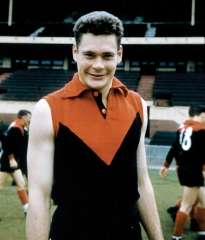 |
1996 | 253 games | 330 goals | 6 premierships
|
4 premierships
|
Representative Honours:
Club Honours:
Coaching Record:
|
Kevin Bartlett |
2000 | 403 Games
|
778 Goals
|
5 premierships
|
Representative Honours: League Honours:
Club Honours:
Coaching Record:
| |
Malcolm Blight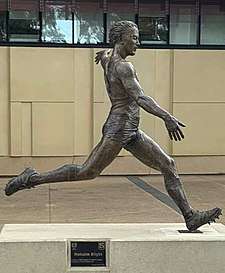 |
2017 | 342 Games
|
803 Goals
|
2 premierships
|
2 premierships
|
Representative Honours:
League Honours:
Club Honours:
Coaching Record:
|
Haydn Bunton Sr. |
1996 | 208 Games
|
427 Goals
|
Representative Honours:
League Honours:
Club Honours:
Coaching Record:
| ||
| Barry Cable | 2012 | 382 Games
|
508 Goals
|
6 premierships
|
1 premierships
|
Representative Honours:
League Honours
Club Honours
Coaching Record:
|
Roy Cazaly |
1996 | 198 Games
|
167 Goals
|
Representative Honours:
Club Honours:
Coaching Record:
| ||
John Coleman |
1996 | 98 Games
|
537 Goals
|
2 premierships
|
2 premierships
|
Representative Honours:
League Honours:
Club Honours:
Coaching Record:
|
Gordon Coventry |
1998 | 306 Games
|
1,299 Goals
|
5 premierships
|
Representative Honours:
League Honours:
Club Honours:
| |
Jack Dyer |
1996 | 312 Games
|
433 Goals
|
2 premierships
|
1 premierships
|
Representative Honours:
Club Honours:
Coaching Record:
|
Graham Farmer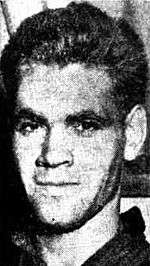 |
1996 | 356 Games
|
227 Goals
|
6 premierships
|
2 premierships
|
Representative Honours:
League Honours:
Club Honours:
Coaching Record:
|
| Royce Hart | 2013 | 188 Games | 369 Goals | 4 premierships
|
Representative Honours:
Club Honours:
Coaching Record:
| |
Peter Hudson |
1999 | 288 games
|
1,721 Goals
|
2 premierships |
Representative Honours:
League Honours:
Club Honours:
| |
Bill Hutchison |
1996 | 290 Games
|
496 Goals
|
4 premierships
|
Representative Honours:
League Honours:
Club Honours:
| |
| Alex Jesaulenko | 2008 | 279 Games | 444 Goals | 4 premierships
|
1 premierships
|
Representative Honours:
Club Honours:
Coaching Record: |
John Kennedy Sr. |
2020 | 164 Games
|
29 Goals
|
3 premierships
|
Representative Honours:
Club Honours:
Coaching Record:
| |
| Tony Lockett | 2015 | 281 Games | 1,360 Goals |
Representative Honours:
League Honours:
Club Honours:
| ||
Leigh Matthews |
1996 | 332 Games
|
915 Goals
|
4 premierships
|
4 premierships
|
Representative Honours:
League Honours:
Club Honours:
Coaching Record:
|
Jock McHale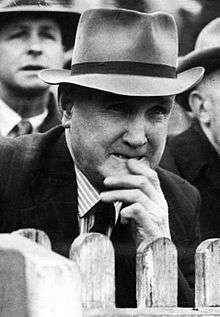 |
2005 | 261 Games
|
18 Goals
|
2 premierships
|
8 premierships
|
Club Honours:
Coaching Record:
|
| Kevin Murray | 2010 | 377 Games
|
71 Goals
|
Representative Honours:
League Honours:
Club Honours:
Coaching Record:
| ||
| John Nicholls | 1996 | 328 Games
|
307 Goals
|
3 premierships
|
1 premierships
|
Representative Honours:
Club Honours:
Coaching Record:
|
Bob Pratt |
1996 | 158 Games
|
681 Goals
|
1 premiership
|
League Honours: Club Honours:
| |
Dick Reynolds |
1996 | 320 Games
|
442 Goals
|
4 premierships
|
4 premierships
|
Representative Honours:
League Honours:
Club Honours:
Coaching Record:
|
Barrie Robran |
2001 | 201 Games
|
196 Goals
|
2 premierships
|
Representative Honours:
League Honours:
Club Honours:
Coaching Record:
| |
Kevin Sheedy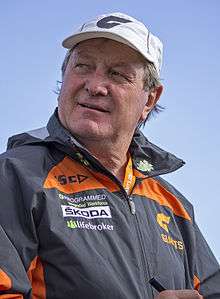 |
2018 | 251 Games
|
91 Goals
|
3 premierships
|
4 premierships
|
Representative Honours:
Club Honours:
Coaching Record:
|
| Bob Skilton | 1996 | 237 Games
|
412 Goals
|
Representative Honours:
League Honours:
Club Honours:
Coaching Record:
| ||
Norm Smith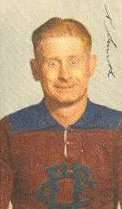 |
2007 | 227 Games | 527 Goals | 4 premierships
|
6 premierships
|
Representative Honours:
League Honours:
Club Honours:
Coaching Record:
|
| Ian Stewart | 1997 | 218 Games | 80 Goals | 2 premierships |
Representative honours:
League honours:
Club honours:
Coaching record:
| |
Ted Whitten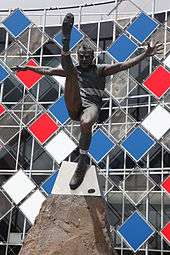 |
1996 | 321 Games
|
360 Goals
|
1 premiership
|
Representative Honours:
Club Honours:
Coaching Record:
| |
Player inductees
Coach inductees
People inducted into the Australian Football Hall of Fame on their coaching records (alphabetical order).
| Coach | Clubs coached | Record (W-L-D) | Premierships coached | Year inducted | |
|---|---|---|---|---|---|
| Haydn Bunton Jr | Norwood | 101 (52–48–1) | 5 | 1996 | |
| Launceston | 16 (6–10–0) | ||||
| Swan Districts | 92 (55–35–2) | 1961, 1962, 1963 | |||
| Subiaco | 314 (168–145–1) | 1986, 1988 | |||
| South Adelaide | 179 (84–93–2) | ||||
| Sturt | 42 (9–33–0) | ||||
| John Cahill | Port Adelaide | 465 (330–129–6) | 1977, 1979, 1980, 1981, 1988, 1989, 1990, 1992, 1994, 1995 | 10 | 2002 |
| Collingwood | 47 (27–20–0) | ||||
| West Adelaide | 69 (34–35–0) | ||||
| South Adelaide | 20 (5–14–1) | ||||
| Tom Hafey | Richmond | 248 (173–73–2) | 1967, 1969, 1973, 1974 | 4 | 1996 |
| Collingwood | 138 (89–47–2) | ||||
| Geelong | 66 (31–35–0) | ||||
| Sydney | 70 (43–27–0) | ||||
| Frank Hughes | Richmond | 120 (87–31–2) | 1932 | 5 | 1996 |
| Melbourne | 254 (157–95–2) | 1939, 1940, 1941, 1948 | |||
| Allan Jeans | St Kilda | 332 (193–138–1) | 1966 | 4 | 1996 |
| Hawthorn | 221 (159–61–1) | 1983, 1986, 1989 | |||
| Richmond | 22 (5–17–0) | ||||
| John Kennedy Sr | Hawthorn | 299 (181–116–2) | 1961, 1971, 1976 | 3 | 1996, Legend |
| North Melbourne | 113 (55–55–3) | ||||
| Johnny Leonard | South Melbourne | 19 (13–6–0) | 5 | 1996 | |
| West Perth | 66 (43–22–1) | 1934, 1935 | |||
| Claremont | 109 (65–43–1) | 1938, 1939, 1940 | |||
| Mick Malthouse | Footscray | 135 (67-66-2) | 3 | 2019 | |
| West Coast | 243(156–85–2) | 1992, 1994 | |||
| Collingwood | 286 (163–121–2) | 2010 | |||
| Carlton | 54 (20–33–1) | ||||
| Phillip Matson | Subiaco | 1913–1914 | 1913 | 8 | 2004 |
| East Perth | 1918–1924, 1926–1928 | 1919, 1920, 1921, 1922, 1923, 1926, 1927 | |||
| Jack Oatey | Norwood | 229 (147–81–1) | 1945, 1948, 1950 | 10 | 1996 |
| West Adelaide | 78 (52–26–0) | ||||
| Sturt | 470 (314–152–4) | 1966, 1967, 1968, 1969, 1970, 1974, 1976 | |||
| David Parkin | Hawthorn | 94 (57–37–0) | 1978 | 4 | 2002 |
| Carlton | 355 (219–134–2) | 1981, 1982, 1995 | |||
| Fitzroy | 69 (30–39–0) | ||||
| Jack Sheedy | East Fremantle | 39 (23–16–0) | 2 | 2001 | |
| East Perth | 223 (149–72–3) | 1956, 1959 | |||
| Kevin Sheedy | Essendon | 634 (386–242–6) | 1984, 1985, 1993, 2000 | 4 | 2008, Legend |
| GWS Giants | 44 (3–41–0) | ||||
| John Todd | Swan Districts | 417 (217–200–0) | 1982, 1983, 1984, 1990 | 6 | 2003 |
| East Fremantle | 87 (45–41–1) | 1974 | |||
| South Fremantle | 172 (83–88–1) | 1997 | |||
| West Coast | 45 (20–25–0) | ||||
| Fos Williams | Port Adelaide | 447 (333–112–2) | 1951, 1954, 1955, 1956, 1957, 1958, 1962, 1963, 1965 | 9 | 1996 |
| West Adelaide | 109 (42–67–0) | ||||
| South Adelaide | 18 (3–15–0) | ||||
Umpires
|
|
Media
|
|
Administrators
|
|
Pioneers
Induction ceremony
Every year there is a special Hall of Fame dinner to announce and welcome the new inductees to the Hall of Fame.
The Hall of Fame inductions started in Melbourne in 1996 to celebrate the VFL-AFL centenary season. Ceremonies have only been held outside of Victoria twice, once at Canberra in 2013 and once at Adelaide in 2017.[7]
In 2020, due to the COVID-19 pandemic, the usual annual induction event was not held, and instead the new inductees and legend elevation were announced over four nights in a series of television shows.[8]
Induction locations
|
|
|
Criticism

The Hall of Fame has been criticised by football writers and historians for being heavily biased towards figures from Victoria.[9]
The initial selection committee was made up of 11 Victorians, one South Australian and one Western Australian, with the current selection committee being made up of six Victorians, two Western Australians and one South Australian. Of the 136 inaugural inductees into the Hall of Fame, 116 played substantial parts of their careers in Victoria, with eleven of the thirteen "Legends" from Victoria.[10]
Criticism has also been slated at the under-representation of pioneers and other early stars of the game. Adam Cardosi wrote in 2014:[11]
If we take the HOF at face value, footy legends only started to appear in number from the 1930s, and reached a high point in the 1960s and 1970s. ... Thus, according to the HOF’s reckoning, the first sixty five years of the game is worth one legend, while the next sixty five years is worth 24 legends.
In 2018, the same criticism was levelled by ABC sport reporter James Coventry, who mentioned that over 60% of Legends inducted were either playing or coaching in 1969.[12]
I would never suggest Kevin Sheedy is not a worthy Legend, he absolutely is, but you have to think something’s gone seriously wrong with past selection for the #HallofFame to now be in a position where 17 of its 28 Legends were active in 1969.
See also
- Australian Capital Territory Football Hall of Fame ACT (Est. 2006)
- New South Wales Football Hall of Fame NSW (Est. 2003)
- Northern Territory Football Hall of Fame NT (Est. 2010)
- Queensland Football Hall of Fame QLD (Est. 2008)
- South Australian Football Hall of Fame (Est. 2002)
- Tasmanian Football Hall of Fame (Est. 2005)
- West Australian Football Hall of Fame (Est. 2004)
References
- About the Hall of Fame
- Higgins, Ben (28 October 2015). "Longer HOF wait for retired greats". PerthNow. Retrieved 3 June 2020.
- AFL Hall of Fame criteria changes
- Riley, Beveridge (16 November 2018). "Hall of Fame changes pave way for females to be inducted". afl.com.au. Retrieved 3 June 2020.
- AFL legend status even more exclusive
- Rucci, Michaelangelo (4 June 2015). "AFL Hall of Fame 2015: Bob Hammond enters the AFL Hall of Fame on back of off-field service". News Corporation. Herald Sun. Retrieved 4 June 2015.
- http://www.adelaidenow.com.au/sport/afl/local-footy-sa/sanfl/sas-chances-of-hosting-australian-football-hall-of-fame-dinner-next-year-hinge-on-state-government-support/news-story/103cb516452f89dfd1c0e0aa13980916
- Twomey, Callum (25 May 2020). "Four-night extravaganza: Hall of Fame locked in". afl.com.au. Retrieved 3 June 2020.
- Vics play favourites as Peake on bench – The West Australian. Published 11 June 2011. Written by Mark Duffield. Retrieved 7 October 2011.
- AFL Hall of Fame – See Victoria Archived 6 August 2011 at the Wayback Machine – FullPointsFooty. Retrieved 7 October 2011.
- Cardosi, Adam (12 March 2014). "Neglected heroes: The sad case of the Australian Football Hall of Fame", Australian Football. Retrieved 12 March 2014.
- Coventry, James (29 May 2018). "JCoventry/status". Twitter. Retrieved 1 June 2018.
- Ross, John (1999). The Australian Football Hall of Fame. Australia: HarperCollinsPublishers. ISBN 0-7322-6426-X.